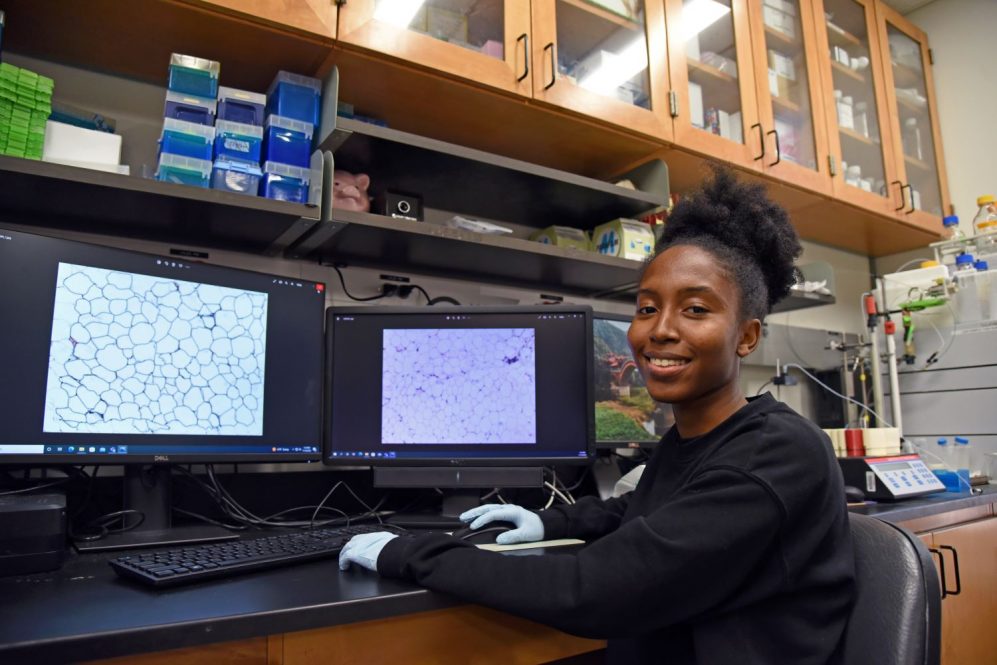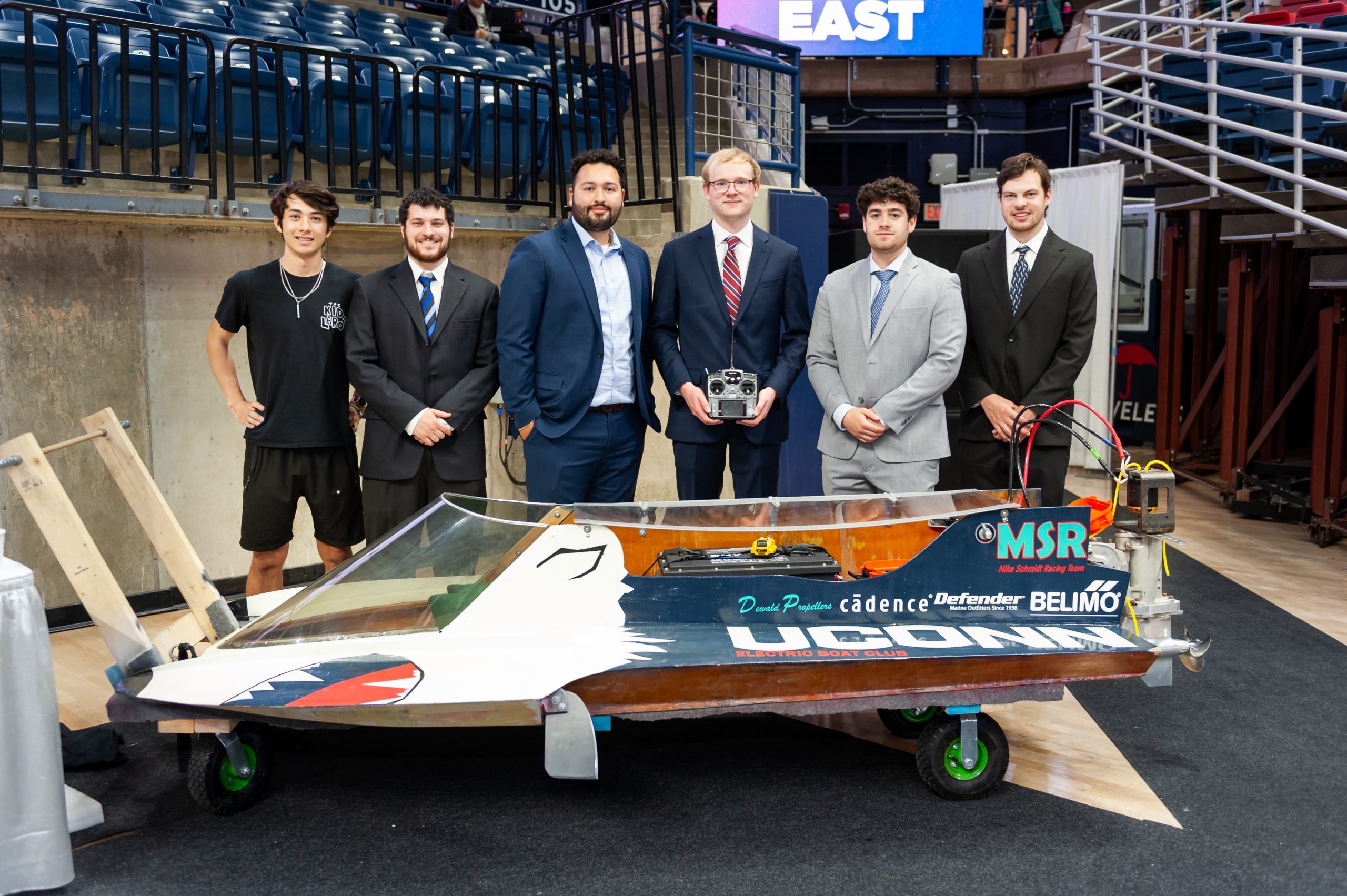Naniel Scott ’23 (CAHNR) has discovered a passion for clinical nutrition during her time at UConn that has allowed her to help her community and inspired a lifelong path.
Scott started UConn on the pre-med track. But when she took a required course on nutrition, her plans and major changed.
A nutritional sciences major in the College of Agriculture, Health and Natural Resources, Scott was particularly drawn to how this field of study focuses on the patient’s needs within a complete health system.
“It’s not in a vacuum, it’s a whole system that works together,” Scott says. “That’s what drew me to nutrition, knowing that you can make these lifestyle changes, you can make these dietary changes and that can significantly improve the quality of your health.”
Scott grew up in Jamaica and moved to the U.S. when she was 16. During her first week in the U.S., she found herself visiting several family friends in the hospital.
“I was saying ‘The people here are really sick’,” Scott says.
Scott noticed that there was a much greater emphasis on pharmaceutical treatment than natural or lifestyle remedies which could better address the root of the problem.
“The way I see it, it’s putting a bandage over the issue,” Scott says.
Over the summer, Scott had the opportunity to intern with ASPEN (the American Society for Parenteral and Enteral Nutrition). ASPEN is a national interprofessional group that focuses on clinical nutrition. ASPEN provides education and resources to both patients and providers including pharmacists, doctors, nurses, and dieticians.
“The aim is to educate healthcare professionals on how this would affect the patients they serve to deliver better care,” Scott says.
Through her internship with ASPEN, Scott had the opportunity to develop social media and marketing materials, help gain sponsorships to support research, and tracked demographic data about who was attending the organization’s educational webinars.
“I got to dabble in everything and learn how it all works,” Scott says.
ASPEN also engages in advocating to state legislatures to garner broader support for Malnutrition Awareness Week, one of their major initiatives, and the use of food as medicine. As part of her internship, Scott was given the responsibility of planning Malnutrition Awareness Week for UConn, which took place in September, 2022.
Scott also compiled ASPEN’s resources on symptoms of malnutrition and questions to ask your doctor about nutrition. Symptoms can include unexplained weight loss or gain, sudden changes in appetite, nausea, vomiting, and loss of energy. She also developed a series of nutrient-rich recipes for abating hypertension and diabetes.
Her work specifically targeted food pantries in the Hartford area, since those who are most impacted by malnutrition are older adults, people of color, and people with lower incomes. For Scott, it was important to use ingredients and flavors that would be familiar for this population.
“Some of the items at the food pantry, while it might be nutritionally dense, it might not be a food you’re familiar with, so you aren’t going to use it,” Scott says.
Recipes included high-protein oatmeal, oat and banana pancakes, chili-loaded sweet potatoes,
and a salad.
“That’s food you’re familiar with,” Scott says. “So, you don’t feel like this is an unattainable diet for you.”
Scott also tried to make recipes that needed minimal appliances since lower-income individuals may not have access to many kitchen appliances. Seeing this barrier, Scott has partnered with the UConn student organization Good Food4U to collect discarded appliances at the end of the year and donate them.
Scott is also working in the lab of professor and head of the Department of Nutritional Sciences, Ji-Young Lee. She is studying how foods like sugar kelp can help prevent the onset of obesity and fatty liver diseases, an experience Scott says she wants to continue after graduation.
“I’ve found that I really enjoy the lab and research because you learn so much that could help people improve their health,” Scott says.
Patricia Anthony ’80 (CAHNR), senior director of organizational growth at ASPEN, helped develop the internship to give nutritional science students hands-on experience and exposure to a wide variety of careers in clinical nutrition.
Follow UConn CAHNR on social media



